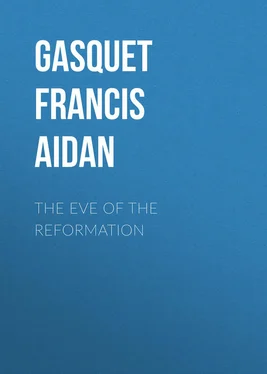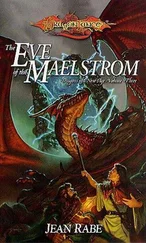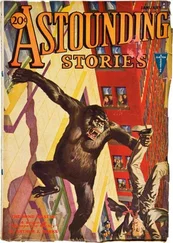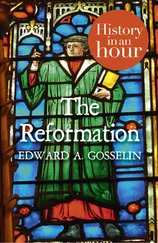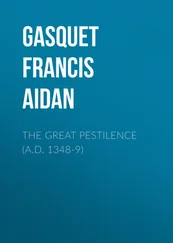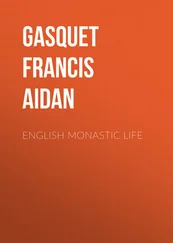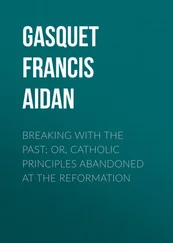Francis Gasquet - The Eve of the Reformation
Здесь есть возможность читать онлайн «Francis Gasquet - The Eve of the Reformation» — ознакомительный отрывок электронной книги совершенно бесплатно, а после прочтения отрывка купить полную версию. В некоторых случаях можно слушать аудио, скачать через торрент в формате fb2 и присутствует краткое содержание. Жанр: foreign_antique, foreign_prose, на английском языке. Описание произведения, (предисловие) а так же отзывы посетителей доступны на портале библиотеки ЛибКат.
- Название:The Eve of the Reformation
- Автор:
- Жанр:
- Год:неизвестен
- ISBN:нет данных
- Рейтинг книги:3 / 5. Голосов: 1
-
Избранное:Добавить в избранное
- Отзывы:
-
Ваша оценка:
- 60
- 1
- 2
- 3
- 4
- 5
The Eve of the Reformation: краткое содержание, описание и аннотация
Предлагаем к чтению аннотацию, описание, краткое содержание или предисловие (зависит от того, что написал сам автор книги «The Eve of the Reformation»). Если вы не нашли необходимую информацию о книге — напишите в комментариях, мы постараемся отыскать её.
The Eve of the Reformation — читать онлайн ознакомительный отрывок
Ниже представлен текст книги, разбитый по страницам. Система сохранения места последней прочитанной страницы, позволяет с удобством читать онлайн бесплатно книгу «The Eve of the Reformation», без необходимости каждый раз заново искать на чём Вы остановились. Поставьте закладку, и сможете в любой момент перейти на страницу, на которой закончили чтение.
Интервал:
Закладка:
Savage also declared that he was in St. John Street within the precincts of the priory “pur amendement de son vie, durant son vie,” when on the 8th of June an officer, William Rotte, and others took him by force out of the place, and carried him away to the Tower. He consequently claimed to be restored to the Sanctuary from which he had been abducted. Chief-Justice Fineux, before whom the prisoner had been brought, asked him whether he wished to “jeopardy” his case upon his plea of Sanctuary, and, upon consultation, John Savage replied in the negative, saying that he wished rather to throw himself upon the king’s mercy. Fineux on this, said: “In this you are wise, for the privileges of St. John’s will not aid you in the form in which you have pleaded it. In reality it has no greater privilege of Sanctuary than every parish church in the kingdom; that is, it has privileges for forty days and no more, and in this it partakes merely of the common law of the kingdom, and has no special privilege beyond this.”
Further, Fineux pointed out that even had St. John’s possessed the Sanctuary the prior claimed, this right did not extend to the fields, &c., but in the opinion of all the judges of the land, to which all the bishops and clergy had assented, the bounds of any Sanctuary were the church, cloister, and cemetery. Most certain it was that the ambitus did not extend to gardens, barns, and stables, and in his (Fineux’s) opinion, not even to the pantry and buttery. He quotes cases in support of his opinion. In one instance a certain William Spencer claimed the privilege of Sanctuary when in an orchard of the Grey Friars at Coventry. In spite of the assertion of the guardian that the Pope had extended the privilege to the whole enclosure, of which the place the friars had to recreate themselves in was certainly a portion, the plea was disallowed, and William Spencer was hanged.
In regard to the privilege of the forty days, Fineux declared that it was so obviously against the common good and in derogation of justice, that in his opinion it should not be suffered to continue, and he quoted cases where it had been set aside. In several cases where Papal privileges had been asserted, the judges had held “quant à les Bulles du pape, le pape sans le Roy ne ad power de fayre sanctuarie.” In other words, Fineux rejected the plea of the murderer Savage. But the case did not stop here, both the prior and Savage, as we should say, “appealed,” and the matter was heard in the presence of Cardinal Wolsey, Fineux, Brudnell, and several members of the inner Star Chamber. Dr. Potkyn, counsel for the Prior of St. John, pleaded the “knowledge and allowance of the king” to prove the privilege. No decision was arrived at, and a further sitting of the Star Chamber was held on November 11, 1520, in the presence of the king, the cardinal, all the judges, and divers bishops and canonists, as well as the Prior of St. John and the Abbot of Westminster. Before the assembly many examples of difficulties in the past were adduced by the judges. These difficulties they declared increased so as to endanger the peace and law of the country, by reason of the Sanctuaries of Westminster and St. John’s. To effect a remedy was the chief reason of the royal presence at the meeting. After long discussion it was declared that as St. John’s Sanctuary was made, as it had been shown, by Papal Bull, it was consequently void even if confirmed by the king’s patent, and hence that the priory had no privilege at all except the common one of forty days. The judges and all the canonists were quite clear that the Pope’s right to make a Sanctuary had never been allowed in England, and that every such privilege must come from the king. On the other hand, the bishops present and all the clergy were equally satisfied that the general forty days’ privilege belonged by right to every parish church. The Abbot of Westminster then proved by the production of charters and other indubitable evidence that the Sanctuary of Westminster had its origin in the grants of various kings, and had only been blessed by the Pope.
Fineux pointed out that Sanctuary grants had always been made to monasteries and churches “to the laud and honour of God,” and that it was not certainly likely to redound to God’s honour when men could commit murder and felony, and trust to get into the safe precinct of some Sanctuary; neither did he believe that to have bad houses in Sanctuaries, and such like abuses, was either to the praise of God or for the welfare of the kingdom. Further, that as regards Westminster, the abbot had abused his privileges as to the ambitus or precincts which in law must be understood in the restricted sense. The cardinal admitted that there had been abuses, and a Commission was proposed to determine the reasonable bounds. Bishop Voysey, of Exeter, suggested that if a Sanctuary man committed murder or felony outside, with the hope of getting back again, the privilege of shelter should be forfeited; but the majority were against this restriction. On the whole, however, it was determined that for the good of the State the uses of these Sanctuaries should be curtailed, and that none should be allowed in law but such as could show a grant of the privilege from the crown. 71 71 Robert Keilway, Relationes quorundam casuum , f. 188, seqq.
In the opinion of many, of whom Saint-German was the spokesman, to go to another matter, Parliament might assign “all the trees and grass in churchyards either to the parson, to the vicar, or to the parish,” as it thought fit; for although the ground was hallowed, the proceeds, such as “trees and grass, are mere temporals, and as such must be regulated by the power of the State.”
Moreover, according to the same view, whilst it would be outside the province of the secular law to determine the cut of a priest’s cassock or the shape of his tonsure, it could clearly determine that no priest should wear cloth made out of the country, or costing above a certain price; and it might fix the amount of salary to be paid to a chaplain or curate. 72 72 Dyalogue , ut sup. , f. 12.
There were circumstances, too, under which, in the opinion of Saint-German, Parliament not only could interfere to legislate about clerical duties, but would be bound to do so. At the time when he was writing, the eve of the Reformation, many things seemed to point to this necessity for State interference. There were signs of widespread religious differences in the world. “Why then,” he asks, “may not the king and his Parliament, as well to strengthen the faith and give health to the souls of many of his subjects, as to save his realm being noted for heresy, seek for the reason of the division now in the realm by diversity of sects and opinions?.. They shall have great reward before God that set their hands to prevent the great danger to many souls of men as well spiritual as temporal if this division continue long. And as far as I have heard, all the articles that are misliked (are aimed) either against the worldly honour, worldly power, or worldly riches of spiritual men. To express these articles I hold it not expedient, and indeed if what some have reported be true, many of them be so far against the truth that no Christian man would hold them to be true, and they that do so do it for some other consideration.” 73 73 Dyalogue , f. 23.
As an example, our author takes the question of Purgatory, which he believes is attacked because men want to free themselves from the money offerings which belief in the doctrine necessitates. And indeed, “if it were ordained by law,” he continues, “that every curate at the death of any of their parishioners should be bound to say publicly for their souls Placebo , Dirige and mass, without taking anything for (the service): and further that at a certain time, to be assigned by Parliament, as say, once a month, or as it shall be thought convenient, they shall do the same and pray for the souls of their parishioners and for all Christian souls and for the king and all the realm: and also that religious houses do in like manner, I fancy in a short time there would be few to say there was no purgatory.” 74 74 Ibid.
Интервал:
Закладка:
Похожие книги на «The Eve of the Reformation»
Представляем Вашему вниманию похожие книги на «The Eve of the Reformation» списком для выбора. Мы отобрали схожую по названию и смыслу литературу в надежде предоставить читателям больше вариантов отыскать новые, интересные, ещё непрочитанные произведения.
Обсуждение, отзывы о книге «The Eve of the Reformation» и просто собственные мнения читателей. Оставьте ваши комментарии, напишите, что Вы думаете о произведении, его смысле или главных героях. Укажите что конкретно понравилось, а что нет, и почему Вы так считаете.
